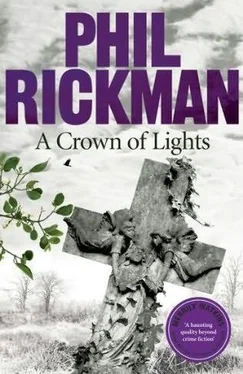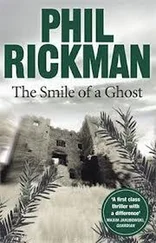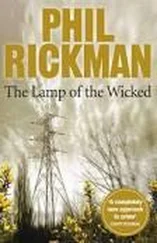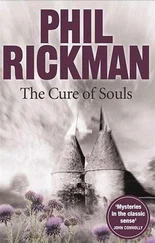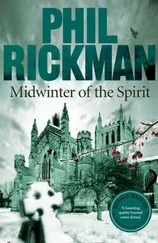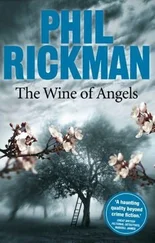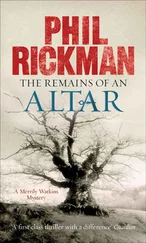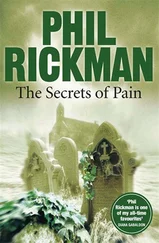Phil Rickman - A Crown of Lights
Здесь есть возможность читать онлайн «Phil Rickman - A Crown of Lights» весь текст электронной книги совершенно бесплатно (целиком полную версию без сокращений). В некоторых случаях можно слушать аудио, скачать через торрент в формате fb2 и присутствует краткое содержание. Год выпуска: 2001, ISBN: 2001, Издательство: Corvus, Жанр: Триллер, на английском языке. Описание произведения, (предисловие) а так же отзывы посетителей доступны на портале библиотеки ЛибКат.
- Название:A Crown of Lights
- Автор:
- Издательство:Corvus
- Жанр:
- Год:2001
- ISBN:978-0-85789-018-4
- Рейтинг книги:3 / 5. Голосов: 1
-
Избранное:Добавить в избранное
- Отзывы:
-
Ваша оценка:
- 60
- 1
- 2
- 3
- 4
- 5
A Crown of Lights: краткое содержание, описание и аннотация
Предлагаем к чтению аннотацию, описание, краткое содержание или предисловие (зависит от того, что написал сам автор книги «A Crown of Lights»). Если вы не нашли необходимую информацию о книге — напишите в комментариях, мы постараемся отыскать её.
A Crown of Lights — читать онлайн бесплатно полную книгу (весь текст) целиком
Ниже представлен текст книги, разбитый по страницам. Система сохранения места последней прочитанной страницы, позволяет с удобством читать онлайн бесплатно книгу «A Crown of Lights», без необходимости каждый раз заново искать на чём Вы остановились. Поставьте закладку, и сможете в любой момент перейти на страницу, на которой закончили чтение.
Интервал:
Закладка:
While Radnorshire – no swish shops, no public schools, no general hospital, no towns with much over 3,000 people – collected the pioneer-types. Trading in the semi in Croydon or Solihull for two scrubby acres, a dozen sheep and a crumbly old farmhouse with rotting timbers, loose slates and stone-lice.
And the pensioners. Radnorshire got them too, by the thousand. Couples like Minnie and Frank, buying up the old farm cottages and the cheap bungalows. And then one of them dies and the other’s stuck, all alone in the middle of nowhere, on account of Radnorshire property prices don’t rise much year to year, and the poor buggers can’t afford to move away.
‘Not going up the funeral?’ the boy said. Though the car park was full, there was only himself and Gomer in the Black Lion. Mourners for Menna Weal had parked up outside, stopped in for one drink, and trailed off to the village hall. Funny old setup, doing church services at the village hall. But that was Radnorshire – lose your church and you makes do.
Gomer shook his head. ‘Well, I never knowed her that well, see.’ Truth was, with Min only days in the ground, he couldn’t face it, could he? Good to help the little vicar, but he realized the vicar was only giving him something to do to take his mind off his own loss; she wouldn’t want him attending no funeral.
‘Nor me,’ the boy said. ‘Mrs Weal never came in here. Her husband comes in occasionally.’
‘Picks up his business in the pub, what I yeard. Folks from Off. Friendly local lawyer, sort o’ thing.’ Gomer had heard this from a few people. He didn’t say much, Big Weal, played his cards close, but he put himself about in all the right places.
The boy came over bashful. ‘He picked us up, actually. He was in here when we were looking over the place. Knew the agent, wound up doing the conveyancing.’ He laughed, a bit uncomfortably. ‘Bloke’s so big you don’t feel you dare refuse, know what I mean?’
‘Likely it was the same with poor Mrs Weal,’ Gomer said.
He’d gathered a fair bit of background about Menna from Danny Thomas, the rock-and-roll farmer at Kinnerton who, it turned out, was a distant cousin. Danny had fancied her himself at one time, but Merv Thomas kept her out of the way of men. Selfish bastard, old Merv, especially after his wife passed on; he had to have another woman around doing the things women had been put on God’s earth to do.
Frail, pale little person, Menna, it seemed. All right for washing and cleaning, but too frail for farming, definitely too frail for Merv Thomas’s farm. Sons was what Merv had needed, but never got. So now the Thomas farm had gone to folk from Off, the deal sorted by J.W. Weal who then married the profits. What a bloody waste, Danny Thomas had said, guitar on his knee in the barn, crunching Gomer’s eardrums with something called ‘Smoke on the Water’.
‘Like I said, he never brought her in here.’ The boy leaned over his bar, confidentially. ‘You never saw her round the village neither. We used to wonder if she had agoraphobia or somefing, but I never liked to ask.’
‘Ar.’ Wise attitude. Nobody liked a new landlord nosing into the affairs of local people. ‘Her never had no friends yere, then?’
‘Mrs Prosser, Councillor Prosser’s wife, she used to go there once or twice a week, apparently.’
Judy Prosser. This figured. Judy Prosser was born and raised the other side of the quarry, no more than half a mile from Merv Thomas’s farm. She’d have known the Thomas girls, likely Barbara better than Menna, being nearer her age. Judy Prosser would know the score. Smart girl that one; not much got past her, whereas most everything got past that dull bugger Gareth.
Well, Gomer had always got on well enough with Judy, in the days before Gareth bought his own digger. Likely he’d hang around here, see if she came in the pub after the funeral.
‘My missus went across there once,’ the boy continued.
‘To visit Menna?’
‘They’d be about the same age, near enough, and she reckoned maybe they could be friends. But she got short shrift. Never got further’n the doorstep.’
‘This is the ole rectory?’
‘Blooming great big place for just the two of them. Never seemed to have guests to stay or anyfing, even in the summer. Never went on holidays either.’
‘Solicitor, see,’ Gomer said. ‘Gotter have ’isself a big house. Status in the community. Plus, his ole man likely got a good deal on it when they ditched the church. You drinking...?’
‘Greg. Fanks very much,’ the boy said. ‘I’ll have a half. So you were from round here, originally, Mr—’
‘Gomer Parry Plant Hire,’ Gomer said. ‘Radnor Valley born an’ bred. Used to run a bunch o’ diggers and bulldozers. We done drainage, soakaways, put roads in, all over the valley. My nephew, Nev, he does it now, see.’
‘Oh, yeah, I know. He was filling in after the archaeological digs, yeah? Used to come in for a sandwich and a pint at lunchtime?’
‘Sure t’be.’
‘They were digging all over the place. We all got excited when it came out they’d found an old temple. We fought it was gonna be like Stonehenge and we’d get thousands of tourists. But all it was – it was just a few holes in the ground where there’d been like wooden posts what rotted away centuries ago. Noffing to see, apart from all the stone axe-heads and stuff they dug up. Terrible disappointment.’
‘Ar. Typical Radnorshire tourist attraction, that is.’ Gomer took out his tin to roll a ciggie. ‘Sounds good till you sees it.’
Crossing the Welsh border, you came, unexpectedly, out of darkness into light, Merrily thought, raising herself up in the passenger seat of Sophie’s Saab. The last English town, Kington, with its narrow streets and dark surrounding hills, had been more like a Welsh country town. The hills beyond were densely conifered until the trees thinned to reveal a rotting cathedral of fissured rocks.
And then, suddenly, the Radnor Valley opened up and the whole landscape was washed clean under a sandy sky, and Merrily sank back again, just wanting to go on being driven through the winter countryside, not having to make any decisions... not having to answer difficult questions with a boom-mic hanging over her like a club.
Sophie took a left, and the car began to burrow under high banks and high, naked hedges. As the lanes narrowed, Old Hindwell began to be signposted, but by now they might just as well have followed any vehicle on that road; every car and Land Rover seemed to contain people dressed in black.
‘One forgets,’ Sophie mused, ‘that rural funerals are such social events.’
The lanes seemed to have brought them in a loop, back into conifer country. The official Old Hindwell sign was small and muddied. Just beyond it, set back into a clearing, sat a well-built, stone Victorian house with a small, conical turret at one end. In most of its windows, curtains were drawn; the others probably didn’t have curtains.
‘The old rectory, do you think?’ Sophie said.
‘Weal’s house? You could be right. There’s obviously nobody about. If it is the rectory, we ought to be able to see the old church nearby.’
She peered among the trees, an uneasy mixture of leafless, twisted oaks and dark, thrusting firs.
‘I suppose it must have occurred to you,’ Sophie said, ‘that the old church here might have been the one referred to by that woman on your TV programme.’
‘The pagan church, mmm?’ The road took them through a farm layout – windowless buildings on either side. ‘But let’s not worry about that until someone asks us to.’
The first grey-brown cottages appeared up ahead.
And the cars. The village was clogged with cars.
Читать дальшеИнтервал:
Закладка:
Похожие книги на «A Crown of Lights»
Представляем Вашему вниманию похожие книги на «A Crown of Lights» списком для выбора. Мы отобрали схожую по названию и смыслу литературу в надежде предоставить читателям больше вариантов отыскать новые, интересные, ещё непрочитанные произведения.
Обсуждение, отзывы о книге «A Crown of Lights» и просто собственные мнения читателей. Оставьте ваши комментарии, напишите, что Вы думаете о произведении, его смысле или главных героях. Укажите что конкретно понравилось, а что нет, и почему Вы так считаете.
